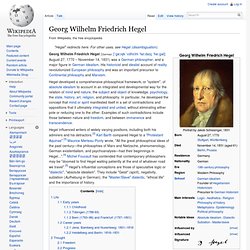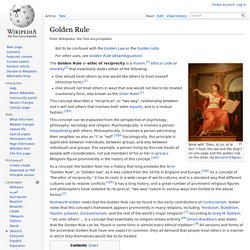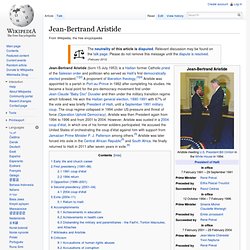

Table of Contents. Kants "What Is Enlightenment" Enlightenment is man's emergence from his self-imposed immaturity. Immaturity is the inability to use one's understanding without guidance from another. This immaturity is self-imposed when its cause lies not in lack of understanding, but in lack of resolve and courage to use it without guidance from another. Sapere Aude ! [dare to know] "Have courage to use your own understanding! "--that is the motto of enlightenment. Laziness and cowardice are the reasons why so great a proportion of men, long after nature has released them from alien guidance (natura-liter maiorennes), nonetheless gladly remain in lifelong immaturity, and why it is so easy for others to establish themselves as their guardians.
Thus, it is difficult for any individual man to work himself out of the immaturity that has all but become his nature. But that the public should enlighten itself is more likely; indeed, if it is only allowed freedom, enlightenment is almost inevitable. Georg Wilhelm Friedrich Hegel. The birthplace of Hegel in Stuttgart, which now houses The Hegel Museum Georg Wilhelm Friedrich Hegel (German: [ˈɡeɔɐ̯k ˈvɪlhɛlm ˈfʁiːdʁɪç ˈheːɡəl]; August 27, 1770 – November 14, 1831) was a German philosopher, and a major figure in German Idealism.

His historicist and idealist account of reality revolutionized European philosophy and was an important precursor to Continental philosophy and Marxism. Life[edit] Early years[edit] Childhood[edit] Alain Badiou. Sustainability. Golden Rule. Book with "Dieu, la Loi, et le Roi" ("God, the law and the king") on one page and the golden rule on the other, by Bernard d'Agesci.

One should treat others as one would like others to treat oneself (directive form).[1]One should not treat others in ways that one would not like to be treated (cautionary form, also known as the Silver Rule).[1] This concept describes a "reciprocal", or "two-way", relationship between one's self and others that involves both sides equally, and in a mutual fashion.[3][4] This concept can be explained from the perspective of psychology, philosophy, sociology and religion. Psychologically, it involves a person empathizing with others. Philosophically, it involves a person perceiving their neighbor as also an "I" or "self".[3][4] Sociologically, this principle is applicable between individuals, between groups, and also between individuals and groups.
Rushworth Kidder notes that the Golden Rule can be found in the early contributions of Confucianism. India[edit] Jean-Bertrand Aristide. Jean-Bertrand Aristide (born 15 July 1953) is a Haitian former Catholic priest of the Salesian order and politician who served as Haiti's first democratically elected president.[1][2] A proponent of liberation theology,[3][4] Aristide was appointed to a parish in Port-au-Prince in 1982 after completing his studies.

He became a focal point for the pro-democracy movement first under Jean-Claude "Baby Doc" Duvalier and then under the military transition regime which followed. He won the Haitian general election, 1990-1991 with 67% of the vote and was briefly President of Haiti, until a September 1991 military coup. The coup regime collapsed in 1994 under US pressure and threat of force (Operation Uphold Democracy). Aristide was then President again from 1994 to 1996 and from 2001 to 2004. However, Aristide was ousted in a 2004 coup d'état, in which one of his former soldiers participated.
Early life and church career[edit] Aristide was born into poverty in Port-Salut, Sud Department.